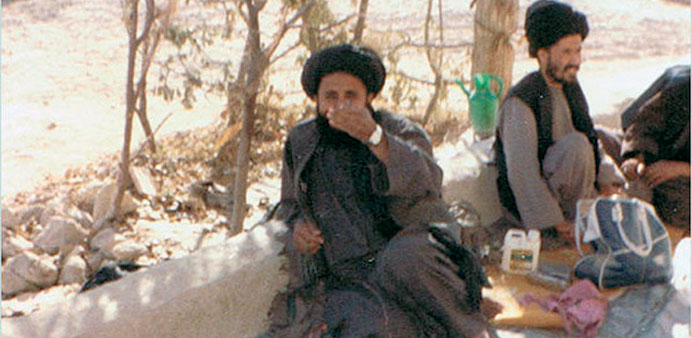|
|
The Afghan government wants Pakistan to release senior Afghan Taliban leaders in its custody in order to facilitate the peace process in Doha, an Afghan official told Gulf Times.
The official, who introduced himself as a former member of the Mujahedeen that fought on the side of Gulbuddin Hekmatyar’s Hezbi Islami party in the “jihad” against Soviet forces, said that although Pakistan did the right thing by releasing two dozen Afghan Taliban prisoners last year, it is believed that it continued to retain the top leaders of the militant organisation in order to maintain its stranglehold over the future of Afghanistan.
The official, who spoke on condition of anonymity, is now a diplomat in the Karzai-led administration.
He was specifically calling for the release of Mullah Abdul Ghani Baradar, the second-in-command of the Taliban supreme leader Mullah Omar, who was captured in a joint operation by Pakistan’s Inter Services Intelligence and America’s CIA in Pakistan in February, 2010.
Mullah Baradar is the senior most Taliban leader after Mullah Omar, who together founded the Taliban movement in Afghanistan in 1994.
The Afghan official claimed that at present the people who were negotiating on behalf of the Taliban at their Doha office were not among the top tier of the movement’s leadership. “Nobody is sure the Taliban leaders in Doha can actually reach any agreement between them and the US and the Afghan government. Most of the people here are quite young and new to the Taliban,” he said.
Giving the example of the official spokesperson of the Taliban office in Doha, Mohamed Naeem, the Afghan official said he had spent most of his life in Pakistan, getting his education from the International Islamic University and it was much later that he joined the Taliban movement “for
a few years” before coming to Doha.
The Afghan official also claimed to have information of a ‘huge split’ within the ranks of the Taliban. “There is a big disconnect between the Taliban members here and the Taliban commanders waging war in Afghanistan. Everybody asks the question whether the Taliban in Doha will be able to fulfil the promises they make here back in Afghanistan.”
He said that most of the hardened Taliban commanders in Afghanistan had very local objectives, such as to secure their business activities in their areas of influence and could choose to ignore the pact signed by the Taliban leaders in Doha.
“It is because of this reason that the Afghan government is interested in the release of Mullah Baradar, because we know that his word commands respect in the entire rank and file of the militant group,” he said.
Afghan and American officials believe that besides running the Taliban’s military operations, Mullah Baradar is the leader of the group’s Quetta Shura based in Pakistan.
They believe that Mullah Baradar would be willing to negotiate with the US and Afghan government independently without taking any dictation from the Pakistani side.
Interestingly, the Taliban themselves have not made any call for the release of Mullah Baradar or described his stay in Pakistan as detention or arrest.
When a Pakistani diplomat based in Doha was asked whether any more release of Taliban prisoners was on the cards, he reiterated the official stand that Pakistan would continue to do all it could to facilitate the peace process.
He recalled that Pakistan had released 26 senior leaders of Taliban in its custody in 2012 which included former governor Helmand Abdul Bari, ex-justice minister Nuruddin Turabi, ex-minister Allah Daad Tabib, ex-governor Kabul Mullah Daud Jan, and ex-governor Mir Ahmed Gul.
However, he declined to say whether any more Taliban leaders, including Mullah Baradar, would be released anytime soon.
Attempts were made to get in touch with the Taliban office in Doha for their version, but they did not answer telephone calls despite repeated attempts until the filing of this report.

